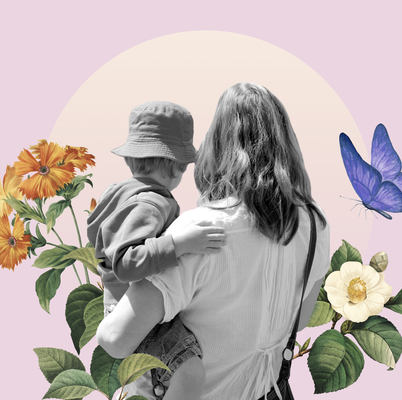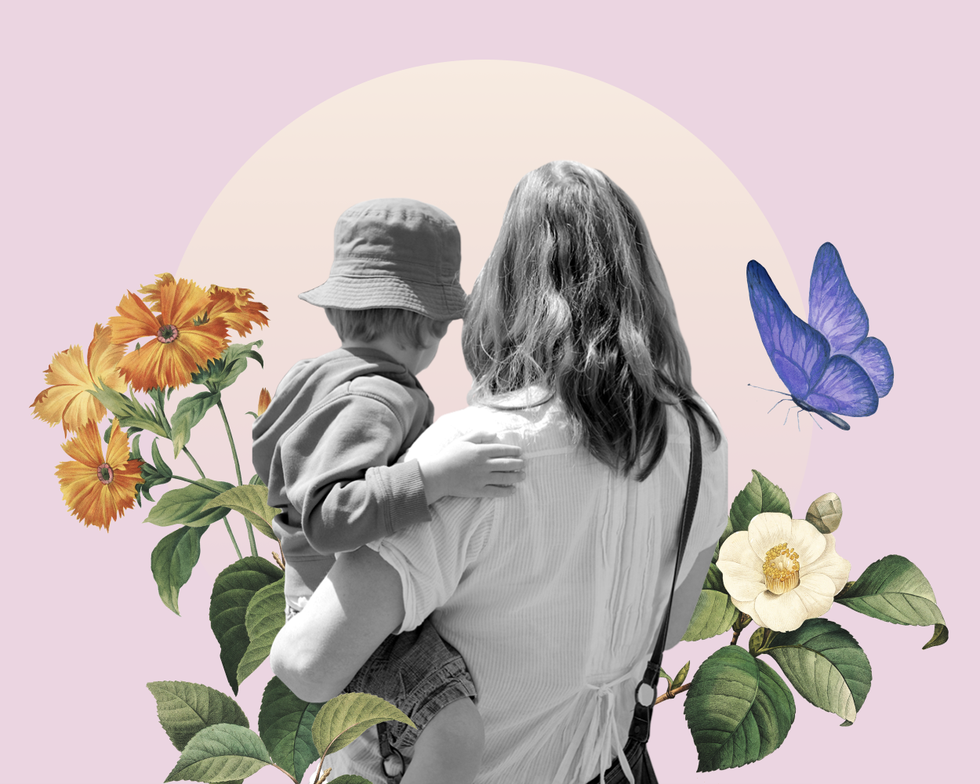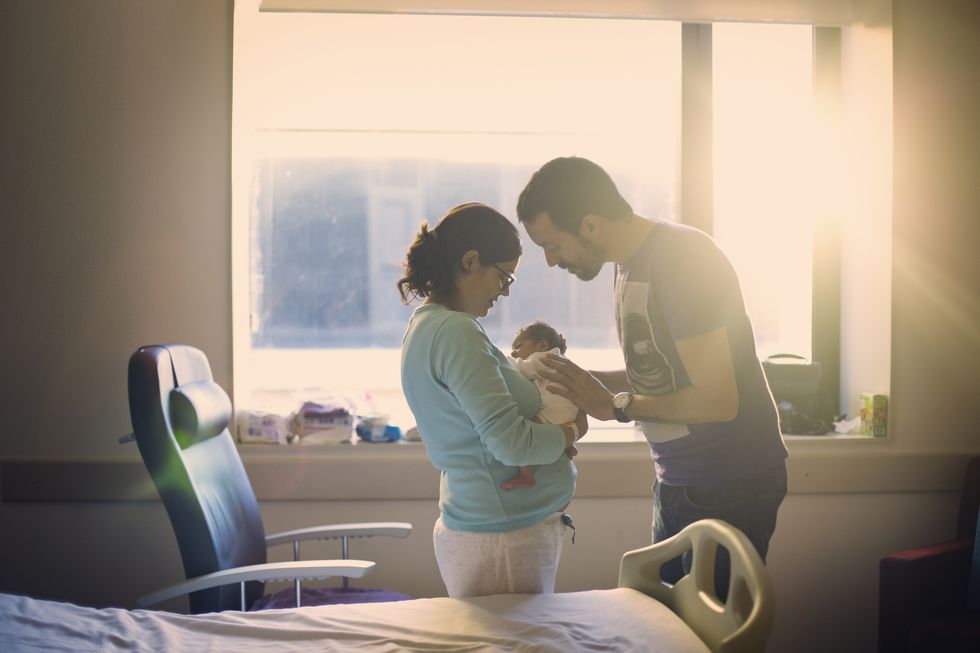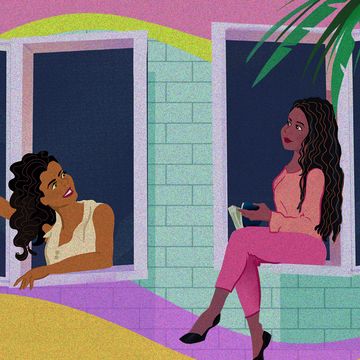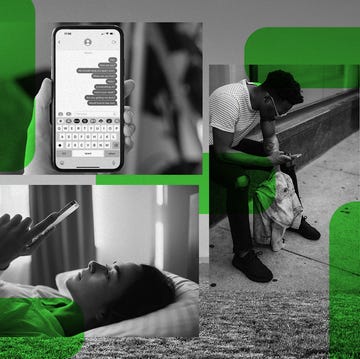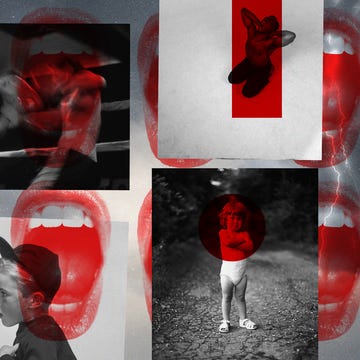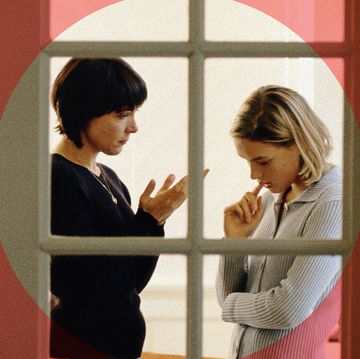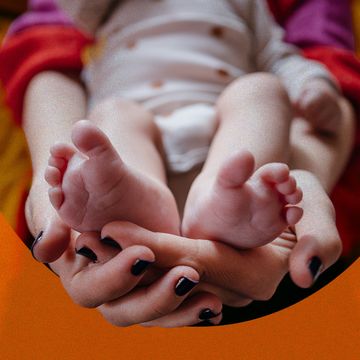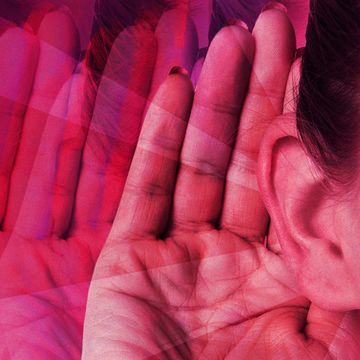A heating pad is draped over my eyes, but I can hear my 6-year-old turn from me and wordlessly walk out of the bedroom. Caught in the trenches of another migraine, my fourth that month, I’ve just begged her to give me a moment. My husband is in the next room trying to get our 2-year-old to sleep, but instead she is screaming for me.
I suffer from a handful of migraines a month, vertigo every few months, and overwhelming fatigue from what a few doctors have attributed to myalgic encephalomyelitis/chronic fatigue syndrome (ME/CFS) after a viral illness in 2013. That day I was battling anger toward my own body and its crashes, the pain pooling behind my eyes and clutching the muscles along my neck and shoulders, and the fear that I was failing my children. As a writer and a journalist, I’m always curious about how my experiences, particularly as a woman and a mother, connect to the experiences of others. Am I alone in my struggles? Are my fears valid? It was this particular migraine that finally sent me to my computer to find out if a parent's chronic illness had an impact on other children, and what it meant for my own.
To my dismay, a 2019 study by a group of researchers from the University of Western Australia found that a father’s health showed no impact on his children, but “daughters of chronically ill mothers had a higher risk of physical, social, and communication difficulties. Sons of chronically ill mothers had a higher risk of language and cognitive difficulties.” The risk level for these outcomes increased with each additional year of exposure to maternal chronic illness.
My health issues are chronic, but they are not life-threatening—to me. These findings heightened my concern that my childrens' were the lives most threatened. I pictured my children as adults, recalling their childhood. “My mother,” they would sadly say, “was always sick,” their therapist nodding sympathetically in response. The research didn’t help ease my mind, and neither did the social media pictures of beautiful women, their hair perfectly coiffed, wearing a crisp, clean T-shirt with the words “Tough As a Mother.” The message in itself isn’t bad; mothers should remember their strength. But I had to dissect what “Tough As a Mother” could mean for me — someone who wasn’t always strong, emotionally or physically. The expectation to be indestructible, not just from society but now from peer-researched scientifically provable studies, felt like an unbearable weight to carry.
I shared the research last month with Cindy Kaplan, MA, a conscious-parenting coach who works with parents and families. “My question,” she said about the study, “is how much this has to do with the role of mother versus father.” Meaning, if the mother is the primary caregiver, of course her absence will have an impact on the children, but what would happen to the results if the majority of the fathers in the study were the primary caregivers?
For most, this will continue to be only a hypothetical. Worldwide, it is predominately women who are the primary caregivers — of not just children but elderly relatives as well. According to the National Partnership for Women and Families, more than 65 million women provided unpaid care — child, family, and elderly — in 2020. The report goes on to say that women’s caregiving increased to an average of eight more hours per week than men’s, and women in the U.S. spent a combined 57 million hours on caregiving — 72 percent of these mothers holding down a job of their own. On top of that, women have to deal with their own human bodies, bodies that suffer from more autoimmune disease — at a rate of two to one compared to men. According to the CDC, in 2018, 51.8 percent of U.S. adults had at least one chronic condition and 27.2 percent had multiple chronic conditions— the highest prevalence included women.
When she suggested that parenting roles could be more relevant than gender for parental illness outcomes, Kaplan isn’t denying that there is a different physiological and influential connection with kids and their mothers, but she also thinks that shame might be more of a problem than illness. “If the mother feels guilt or shame, then there’s a waterfall of other consequences that come from that; does the mother lose patience more often because of her own feeling of what a good mother is supposed to be?”
Kaplan helped me see that the pressure I was putting on myself was fueled by the unrealistic expectations we have about motherhood. Instead of striving to be impenetrable, what if we change the meaning of the word tough. What if tough means expressing the need for self-care, speaking up for yourself and finding your voice, so that our children can learn the power of self-care and self-advocacy for themselves? This reframing can go beyond illness. A metaphor frequently associated with motherhood is the one about affixing your own oxygen mask before assisting others, but this scenario assumes a crisis. What if we make self-care a priority even before it becomes a dire situation that results in overwhelming fatigue and stress? Taking the time to recenter ourselves and do what makes us happy and fulfilled will ultimately benefit our children and make us feel stronger—even if just mentally.
My children are girls who will one day be women navigating a healthcare system bent by gender bias for centuries, even if they don’t choose to have children of their own. I can be “tough as a mother” by teaching them to value their health.
Get Shondaland directly in your inbox: SUBSCRIBE TODAY
